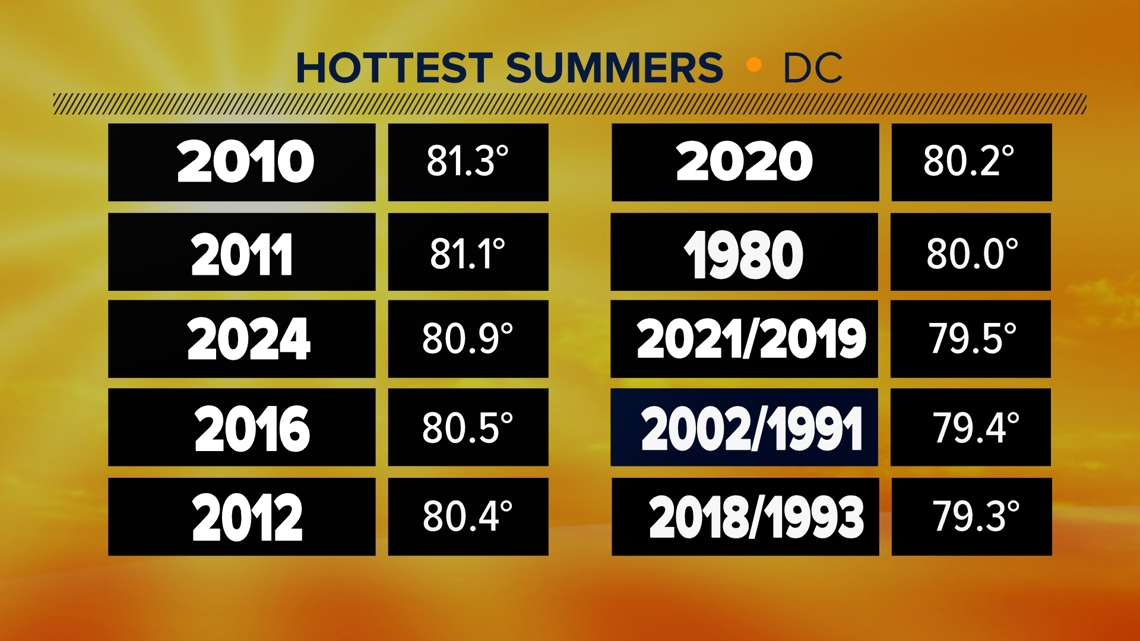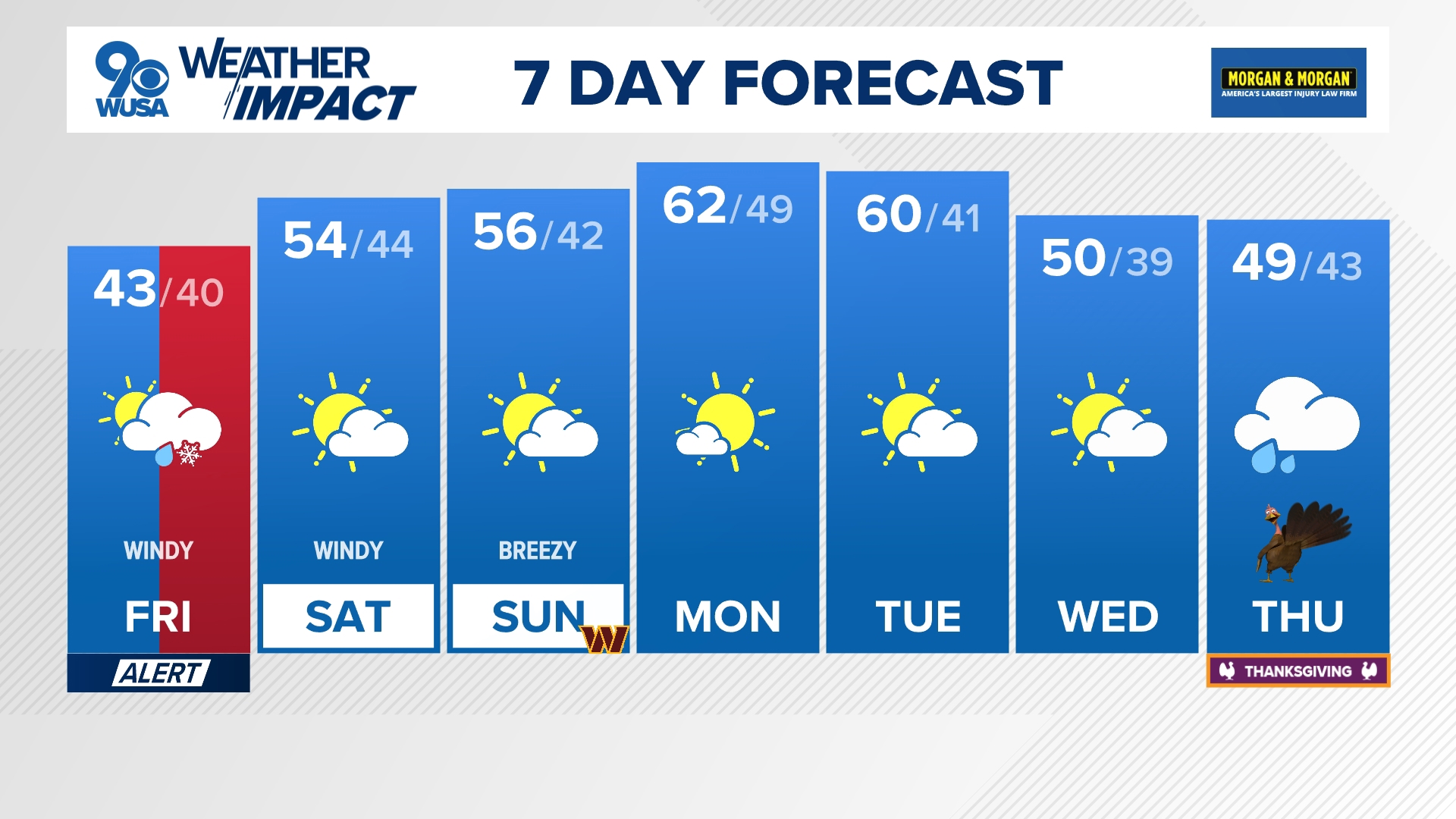WASHINGTON — Meteorological summer came to an end on Aug. 31. It was the third hottest on record in the nation's capital. Although August was slightly cooler than average, the summer as a whole was quite warm since June and July were both much warmer than average.
Prior to this summer, the nation’s capital hadn’t experienced any triple-digit heat since 2016. That streak ended when the high reached 100 degrees on June 22 as part of an 11-day heat wave. A "heat wave" is loosely defined as three or more consecutive days with highs of at least 90 degrees. June 2024 sizzled with 15 days in the 90s. With an average temperature of 79.7 degrees (based on daily high and low temperatures), June became D.C.'s second warmest on record, according to NOAA.


July picked up where June left off with another heat wave from July 4 - July 11. This eight day period produced a sweltering average respective high and low of 97 degrees and 78.4 degrees in the District.
That was followed by another sultry stretch from July 14 through July 17 when D.C. experienced four consecutive days of triple-digit heat. This was the first and only time on record that four consecutive daily high temperatures were at least 101 degrees in the nation's capital. July finished as D.C.'s fourth warmest on record with an average temperature of 83.7 degrees.
RELATED: Comparing two of DC's 'hottest' summers
Nine of the first 10 days of August were also warmer than average in the capital city. However, there was a hard pivot to cooler than average temperatures between Aug. 11 - Aug. 25. The final week of August saw more extreme heat during a four-day stretch, with a record high of 101 degrees on August 28. That was D.C.'s hottest temperature on or after August 20 since Sept. 2, 1980 (also 101 degrees).
Although August finished as a slightly cooler than average month, it was warm enough for "meteorological summer" to finish as D.C.'s third warmest on record. In an unusual occurrence, June was warmer than August (79.3 degrees) for the first time since 2010. August is normally the second hottest month of the year, behind only July.
What contributed to making the 2024 summer so hot? The warm overnight low temperatures that remained at or above 80-degrees on eight days. That was partially a function of a stagnant, hot air mass combined with the strong urban heat island effect that's common in the nation's capital and other major urban areas.



